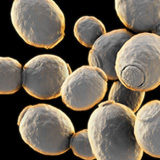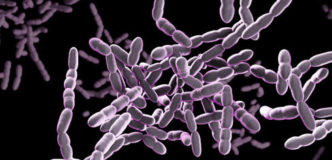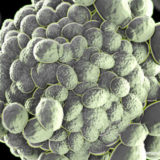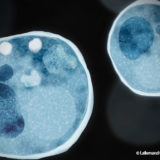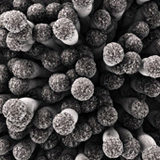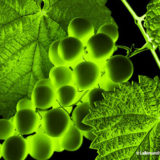| Alpha 1-Step™ |
Selected by IFV, France |
Oenococcus oeni |
Red Wine

White Wine

|
15.5 % |
> 3.2 |
Mouthfeel
Complexity
Fruity |
Product Declaration Safety Datasheet Technical Datasheet |
Alpha was selected by the Institut Francais de la vigne et du vin (IFV), France, from spontaneous malolactic fermentations showing excellent fermentation activity and sensory contribution. Organoleptically the strain Alpha enhances velvet red fruits, roundness and complexity in red wines and respects varietal aromas in white wines. This strain has a tendency to reduce green and vegetative flavours. High in permease activity hence highly recommended for merlots, which tend to be troublesome variety to complete MLF.
|
AWRI YV Select™  |
Australian Wine Research Institute, Australia |
Oenococcus oeni |
Red Wine

|
17 % |
3.2 |
|
Product Declaration Safety Datasheet Technical Datasheet |
AWRI YV Select™ was isolated and selected in the Yarra Valley (Australia) by the Australian Wine Research Institute (AWRI) for its ability to perform malolactic fermentation under a wide range of conditions. AWRI YV Select™ is an efficient Oenococcus oeni wine bacterium which can perform under the most difficult winemaking conditions, such as very high alcohol and low temperatures. In
addition to it’s excellent wine tolerance, AWRI YV Select™ is an uniquely Australian wine bacteria, selected for its robustness and performance under Australian winemaking conditions.
|
| Malotabs™ |
|
Oenococcus oeni |
Red Wine

White Wine

|
16 % |
>3.2 |
|
Product Declaration Safety Datasheet Technical Datasheet |
Selected wine bacteria for malolactic fermentation are now available in a tablet form. Malotabs™ is a specific Oenococcus oeni tablet developed for an easy and simple inoculation in barrels and an easy induction of malolactic fermentation. Easy-to-use and easy-to-add to barrels, Malotabs™ ensure a fast bacterial dissolution and dispersion, complete and homogeneous throughout the entire volume of the barrel. Developped in collaboration with Eurotab®
|
| ML Prime™ |
Selected by Università Cattolica del Sacro Cuore, Italy, |
Lactobacillus plantarum |
Red Wine

|
10 % |
3.4 |
|
Product Declaration Safety Datasheet Technical Datasheet |
ML Prime™ is a new concept of freeze-dried starter culture with a powerful Lactobacillus plantarum with very high malolactic activity and no risk of volatile acidity (VA) production. It has been developed with a new production process that optimizes the active bacterial culture. Its high malolactic enzyme activity strongly shortens the lag phase and can quickly degrade malic acid content up to 3 g/L. It is able to achieve a very fast malolactic fermentation before the growth of indigenous bacteria, often responsible for the VA increase or other wine defects in high pH conditions. Used in co-inoculation, it is perfectly suited to conduct MLF in classical red winemaking process using short or medium macerations or thermovinification process on the liquid phase. It is the perfect tool for winemakers for red vinification with low natural acidity and pH > 3.4.
|
| O-Mega 1-Step® |
Selected in South of France by the Institut Français de la Vigne et du Vin (IFV), France |
Oenococcus oeni |
Red Wine

White Wine

Rosé Wine

|
16 % |
3.1 |
|
Product Declaration Safety Datasheet Technical Datasheet |
O-Mega 1-Step™ was isolated and selected in South of France by the Institut Français de la Vigne et du Vin (IFV) for its capacity to quickly achieve malolactic fermentation (MLF) in a wide range
of applications.It is a secure and efficient strain which tolerates low pH or high alcohol conditions. Reliable on white, red and rosé wines, complements fresh and fruit driven wines and helps to stabilize red wine color because of its slower degradation of acetaldehyde.
|
| O-Mega® |
Selected by Institut Français de la Vigne et du Vin, France |
Oenococcus oeni |
Red Wine

White Wine

Rosé Wine

|
16 % |
3.1 |
Freshness
Complexity |
Product Declaration Safety Datasheet Technical Datasheet |
O-Mega was isolated and selected in South of France by the Institut Français de la Vigne et du Vin (IFV) for its capacity to quickly achieve malolactic fermentation (MLF) in a wide range of applications. is a secure and efficient strain which tolerates low pH or high alcohol conditions with an easy protocol of use (MBR® process). Reliable on white, red and rosé wines,
complements fresh and fruit driven wines and helps to stabilise red wine colour because of its slower degradation of acetaldehyde.
|
| PN4 1-Step® |
Selected by Institute of San Michele - Italy |
Oenococcus oeni |
Red Wine

White Wine

|
15.5 % |
>3.1 |
Spicy
Structure
Complexity |
Product Declaration Safety Datasheet Technical Datasheet |
The PN4 bacteria was isolated from a spontaneous malolactic fermentation in a Pinot Noir, by the Institute of San Michele in Trentino, Italy. In red wines it is known to contribute structure and spiciness whilst in white wines it can contribute a buttery flavour and enhanced mouthfeel.
Diacetyl production; low in Coinoculation, moderate to High in sequential inoculation
|
| PN4™ |
Selected by Institute of San Michele - Italy |
Oenococcus oeni |
Red Wine

White Wine

|
15.5 % |
>3.1 |
In red wines it is known to contribute structure and spiciness whilst in white wines it can contribute a buttery flavour. |
Product Declaration Safety Datasheet Technical Datasheet |
The PN4 bacteria was isolated from a spontaneous malolactic fermentation in a Pinot Noir, by the Institute of San Michele in Trentino, Italy. In red wines it is known to contribute structure and spiciness whilst in white wines it can contribute a buttery flavour and enhanced mouthfeel.
Diacetyl production; low in Coinoculation, moderate to High in sequential inoculation
|
| VP41 1-Step™ |
Italian selection from the CRAFT project |
Oenococcus oeni |
Red Wine

White Wine

|
16 % |
>3.1 |
Fruity
Mouthfeel
Freshness |
Product Declaration Safety Datasheet Technical Datasheet |
VP41 was isolated in a hot region of Italy during an extensive European Union collaboration to research natural Oenococcus oeni strains with unique performance and winemaking properties. VP41 demonstrates excellent tolerance to alcohol (near 16.5% v/v) and a good tolerance of low pH (down to 3.1). VP41 is sensitive to low temperatures and performs best when wine temperature is maintained above 16 degrees C. This strain contributes to the red berry fruit aromas in red wine.
Diacetyl production; low in Coinoculation; low in sequential inoculation
|
| Enoferm Alpha® MBR |
Selected by IFV, France |
Oenococcus oeni |
Red Wine

White Wine

|
15.5 % |
> 3.2 |
Complexity and mouthfeel |
Product Declaration Safety Datasheet Technical Datasheet |
Alpha was selected by the Institut Francais de la vigne et du vin (IFV), France, from spontaneous malolactic fermentations showing excellent fermentation activity and sensory contribution. Organoleptically the strain Alpha enhances velvet red fruits, roundness and complexity in red wines and respects varietal aromas in white wines. This strain has a tendency to reduce green and vegetative flavours.
|
| IOC Inobacter™ |
Selected in the famous French region of high-quality sparkling wine by CIVC, Epernay France |
Oenococcus oeni |
Sparkling Wine

|
14 % |
> 2.9 |
|
Product Declaration Safety Datasheet Technical Datasheet |
Adding selected bacteria triggers malolactic fermentation for white and rosé wines.
INOBACTER™ is used following a three stage protocol (reactivation, acclimatisation and seeding the tank) which enables bacteria to adapt to the lowest pHs.
INOBACTER™ can be used as co-inoculation with yeast or inoculated after the completion of alcoholic fermentation
The excellent tolerance of this strain to extreme wine conditions enables an effective malic acid metabolism.
|
Lalvin MCBB™  |
European CRAFT in Fair program |
Oenococcus oeni |
White Wine

|
15.5 % |
3.2 |
Enhance fruit aromas, High diacetyl in sequential inoculation, increase volume and softness |
Product Declaration Safety Datasheet Technical Datasheet |
Lalvin MCBB™ has been selected during a European CRAFT in Fair program on wine lactic acid bacteria diversity. Following an extensive screening, Lalvin MCBB™ was selected as a very efficient malolactic strain, for white wines, able to produce high concentrations of diacetyl (buttery notes) when inoculated at the end of alcoholic fermentation. Lalvin MCBB™, Malolactic Culture Butter Bomb, is a robust wine bacteria strain able to grow quickly and achieve reliable MLF under a broad range of winemaking conditions.
|
| Lalvin VP41™ |
Italian selection from the CRAFT project |
Oenococcus oeni |
Red Wine

White Wine

|
16.5 % |
>3.2 |
Fruity
Mouthfeel
Freshness |
Product Declaration Safety Datasheet Technical Datasheet |
VP41 was isolated in a hot region of Italy during an extensive European Union collaboration to research natural Oenococcus oeni strains with unique performance and winemaking properties. VP41 demonstrates excellent tolerance to alcohol (near 16.5% v/v) and a good tolerance of low pH (down to 3.1). VP41 is sensitive to low temperatures and performs best when wine temperature is maintained above 16 degrees C. This strain contributes to the red berry fruit aroms in red wine.
Diacetyl production; low in Coinoculation; low in sequential inoculation
|
